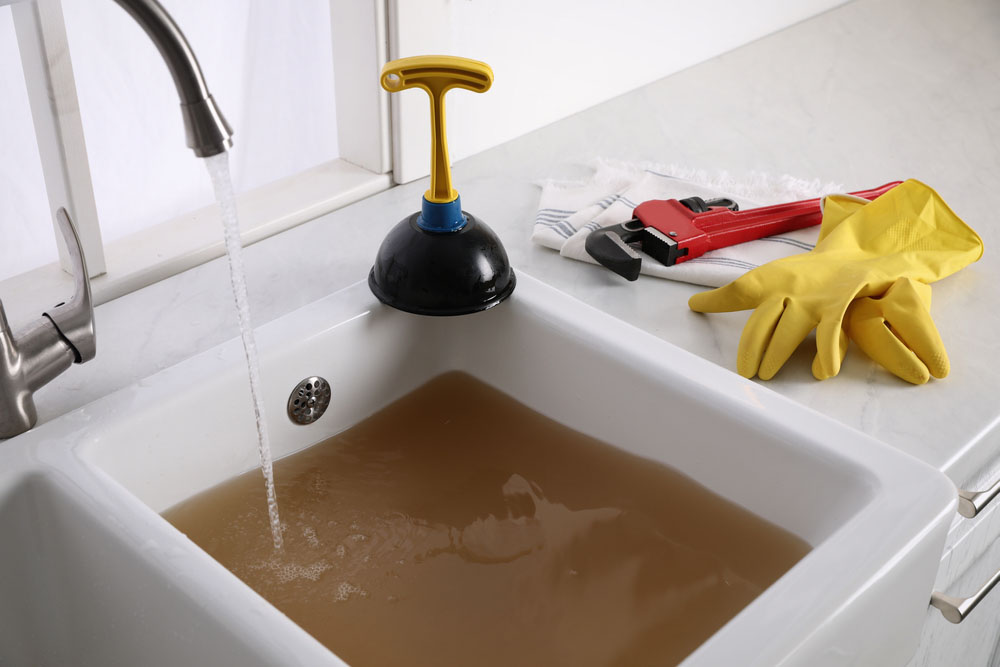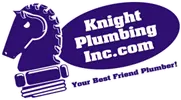
A clogged sewer line can cause major issues for homeowners. You could be dealing with costly repairs, unpleasant odors, and even structural damage to your property. Milwaukee homeowners frequently experience sewer clogs due to factors such as aging infrastructure, tree root intrusion, and improper disposal of household waste. Here at Knight Sewer and Drain, we want to help you understand the primary causes of sewer clogs, and how to prevent them, which can help you maintain a functional plumbing system and avoid emergency situations.
Common Causes of Sewer Clogs
1. Tree Root Intrusion
One of the leading causes of sewer clogs in Milwaukee is tree root intrusion. As trees search for water sources, their roots grow toward underground sewer pipes, as they provide a continuous flow of moisture. If there are even small cracks or weak points in the pipes, roots can force their way inside, creating blockages that slow or stop drainage. Over time, tree roots can cause severe damage, leading to pipe collapse and expensive repairs.
How to Prevent Tree Root Intrusion:
- Avoid planting trees near sewer lines, particularly aggressive species with invasive root systems.
- Schedule routine sewer inspections to detect early signs of root intrusion.
- If tree roots have already infiltrated your sewer line, call a reliable professional for removal immediately.
2. Grease and Fat Buildup
Grease, fats, and oils are a significant contributor to sewer line clogs. When grease is poured down the drain, it may appear to wash away with hot water. But as it cools, it solidifies inside the pipes. Over time, grease buildup narrows the passageway, making it easier for other debris to accumulate and form blockages.
How to Prevent Grease Clogs:
- Never pour grease or cooking oil down the drain. Allow it to cool and dispose of it in the trash.
- Wipe greasy pans with a paper towel before washing them to prevent residue from entering the drain.
- Use strainers in your kitchen sink to catch food particles and prevent them from contributing to grease buildup.
3. Flushing Non-Biodegradable Items
Many household items that are labeled “flushable” can still cause sewer line blockages. Items such as wet wipes, paper towels, feminine hygiene products, cotton swabs, and even dental floss do not break down easily in water. These materials can accumulate in pipes, leading to severe clogs that require professional intervention.
How to Prevent Flushing-Related Clogs:
- Only flush toilet paper and human waste.
- Educate household members about what can and cannot be flushed.
- Keep a small trash bin in the bathroom to encourage proper disposal of non-biodegradable items.
4. Sediment and Mineral Deposits
Milwaukee’s hard water contains minerals like calcium and magnesium, which can accumulate inside sewer pipes over time. These mineral deposits can create a rough surface inside the pipes, making it easier for grease, soap scum, and other debris to stick and form clogs.
How to Prevent Mineral Buildup:
- Consider installing a water softener to reduce mineral deposits in your plumbing system.
- Schedule periodic hydro jetting to remove buildup from the inside of pipes.
- Use vinegar or baking soda to flush out minor mineral buildup before it becomes a major issue.
5. Broken or Collapsed Sewer Pipes
Aging sewer pipes, particularly those made of clay or cast iron, are more susceptible to cracks, breaks, or complete collapse. When this happens, debris can accumulate inside the broken sections, restricting flow and leading to a clog. Milwaukee’s fluctuating weather conditions, including freeze-thaw cycles, can contribute to pipe deterioration over time.
How to Prevent Pipe Damage-Related Clogs:
- Consider replacing outdated clay or cast-iron pipes with modern PVC or trenchless pipe.
- If you notice frequent clogs or slow drainage, have a professional inspect your sewer line for potential structural issues.
6. Heavy Rainfall and Sewer Overflows
During periods to heavy rain, Milwaukee’s municipal sewer system can become overwhelmed, leading to backups that push debris into residential sewer lines. Excess water can carry dirt, leaves, and other natural materials into the sewer system, contributing to blockages that restrict proper drainage.
How to Prevent Weather-Related Sewer Clogs:
- Keep gutters and downspouts clean to prevent excess water from entering your home’s sewer system.
- Install a backwater valve to prevent municipal sewer backups from affecting your home.
- Ensure your yard is properly graded to direct rainwater away from your foundation and sewer line.
Signs That You May Have a Sewer Clog
Identifying sewer clogs early can prevent them from escalating into more serious issues. For example, if multiple fixture pipes are draining slow, you may have an issue with the main sewer line. Other warning signs include gurgling signs from drains or toilets, unpleasant odors near drains, frequent clogs or multiple drain blockages at the same time, and water backing up in unexpected places.
Understanding the top causes of sewer clogs in Milwaukee and taking preventive measures can save homeowners time, money, and frustration. By being proactive with maintenance, you can minimize the risk of serious plumbing issues. Here at Knight Sewer and Drain, we’ve seen firsthand what a difference it makes to be proactive. Whether you’re dealing with tree roots, grease buildup, or sediment deposits, addressing potential blockages early keeps your system running smoothly for years to come. Contact us today if you think your home could use a drain cleaning.
Get in Touch With Us Today
Contact Knight Sewer and Drain to request any of our drain and sewer services in Shorewood, WI. Call us or fill out the form for an appointment.


